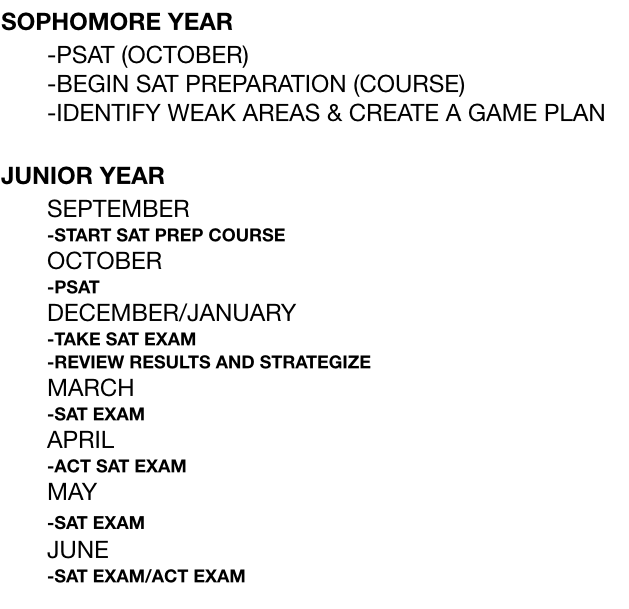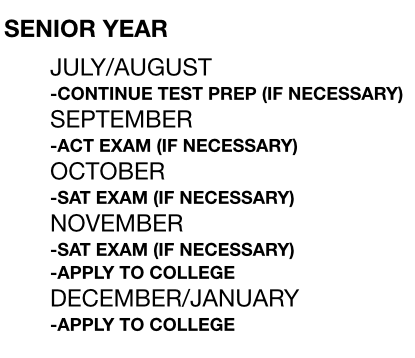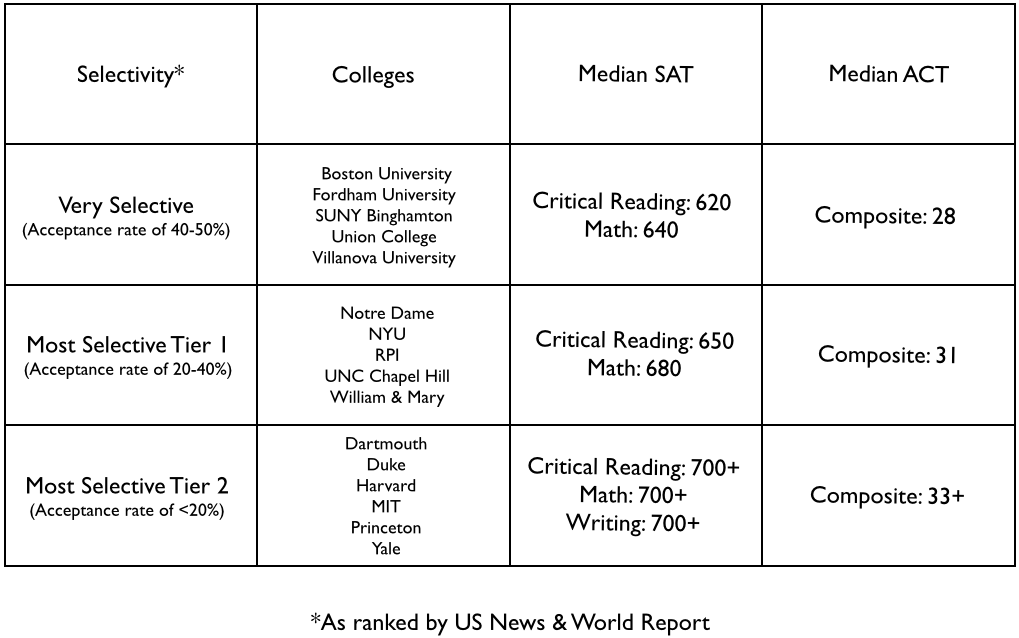START EARLY
Although you will take the exam during your junior and senior years of high school, you should start preparing months or even years in advance.
For the Critical Reading portion of the exam, reading comprehension and vocabulary skills do not develop overnight. By fostering these skills during freshman and sophomore year, you will feel much more confident about your abilities as the official test date approaches.
For the Math portion of the exam, a majority of the concepts tested, approximately 65%, were learned before high school and another 30% should be mastered by the end sophomore year at the latest (with the completion of geometry). By waiting until the end of your junior year to start preparing, you are distancing yourself from the majority of the concepts being tested.
IDEALLY, STUDENTS SHOULD BEGIN SOME FORM OF SAT TRAINING DURING THEIR SOPHOMORE YEAR AND CERTAINLY NO LATER THAN THE BEGINNING OF JUNIOR YEAR.
If you start preparing early, you will find that even if you have labeled yourself as a "bad test taker", you can achieve some impressive results on this exam.
For the Critical Reading portion of the exam, reading comprehension and vocabulary skills do not develop overnight. By fostering these skills during freshman and sophomore year, you will feel much more confident about your abilities as the official test date approaches.
For the Math portion of the exam, a majority of the concepts tested, approximately 65%, were learned before high school and another 30% should be mastered by the end sophomore year at the latest (with the completion of geometry). By waiting until the end of your junior year to start preparing, you are distancing yourself from the majority of the concepts being tested.
IDEALLY, STUDENTS SHOULD BEGIN SOME FORM OF SAT TRAINING DURING THEIR SOPHOMORE YEAR AND CERTAINLY NO LATER THAN THE BEGINNING OF JUNIOR YEAR.
If you start preparing early, you will find that even if you have labeled yourself as a "bad test taker", you can achieve some impressive results on this exam.





 RSS Feed
RSS Feed